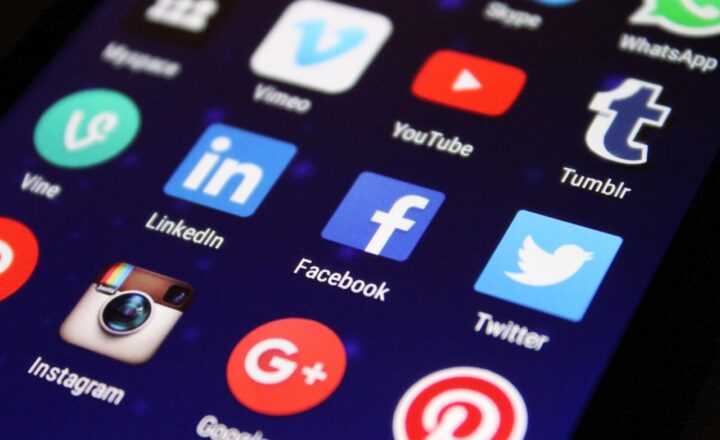How the Internet Is Bridging Cultures and Empowering Global Connections
November 17, 2024

The internet has significantly reshaped the way we interact, communicate, and engage with one another. In a world that once segmented cultures into isolated pockets, the digital revolution has spurred a new age of interconnectedness, fostering relationships that transcend borders and creating a global community. This article explores the multifaceted impact of the internet on culture and community, highlighting how it serves as a bridge between diverse societies and empowers individuals to forge meaningful connections.
1. A Global Village: The Concept Reimagined
The term “global village” was coined by Marshall McLuhan in the 1960s, long before the internet became mainstream. Today, this concept has materialized beyond his wildest dreams. Through social media platforms, blogs, forums, and video sharing sites, people from various cultural backgrounds are brought together in real-time.
From witnessing live events across the world to participating in discussions about diverse cultural practices, individuals can now experience cultures without physical boundaries. This immersive access contributes to a greater understanding of global issues and appreciation of cultural differences.
2. Learning Opportunities and Cultural Exchange
The internet has opened doors to unprecedented educational opportunities. Online courses, webinars, and workshops allow individuals to gain insights into various cultural practices and ideologies. Platforms like Coursera and edX offer courses that range from global history to regional art forms, connecting learners with educators and experts worldwide.
Social media also plays a crucial role in cultural exchange. Users share their traditions, recipes, music, and languages, enriching others’ experiences. Through platforms like Instagram and TikTok, users can explore how festivals are celebrated in different countries, creating a virtual festival atmosphere that transcends geographies.
Additionally, Language Exchange platforms such as Tandem and HelloTalk provide a space where individuals can learn another language while sharing their culture. These interactions promote cultural understanding and sensitivity, leading to stronger relationships.
3. Fighting Stereotypes and Promoting Empathy
Prejudices and stereotypes often arise from ignorance and lack of exposure. The internet provides an antidote, allowing individuals from varied backgrounds to share their authentic stories, create awareness, and challenge preconceived notions.
Through blogs, vlogs, and podcasts, marginalized voices can reach wider audiences, humanizing experiences that often remain invisible. Users can encounter narratives that reflect resilience, creativity, and the shared struggles of humanity. This fosters empathy, enabling people to see beyond ethnic and cultural barriers.
Programs like the “Humans of New York” initiative have spotlighted personal stories from individuals across the globe, humanizing diverse experiences and encouraging people to engage with those who are different from them.
4. Facilitating Collaboration and Innovation
The internet paves the way for collaborative efforts across nations, promoting innovation that reflects collective creativity. Online platforms allow individuals from different cultural and professional backgrounds to collaborate on projects.
One notable example is GitHub, where developers from around the world contribute to open-source software. This collaboration democratizes innovation, turning individual ideas into shared projects that benefit global users regardless of their geographic location.
Moreover, initiatives such as global hackathons invite participants from diverse cultures to co-create solutions to pressing global challenges, from climate change to public health. These events not only boost collaboration within professional realms but also cultivate friendships that can last a lifetime.
5. Challenges of Cultural Assimilation
Despite its numerous benefits, the internet also presents challenges concerning cultural assimilation and the risk of cultural homogenization. As dominant cultures, often from the Global North, proliferate online, there is a risk that local cultures may become overshadowed by global narratives.
This raises critical discussions around the preservation of cultural identity and the importance of promoting diverse perspectives. Digital activism plays a significant role here, with movements encouraging individuals to celebrate and share their unique cultural identities, ultimately fostering a richer tapestry of global experiences.
Strategically, platforms can work towards giving equal visibility to less prominent cultures, showcasing their stories and traditions in ways that honor and celebrate diversity rather than erase it.
Conclusion: A Richer, More Connected World
The internet undeniably serves as a powerful tool in bridging cultures and empowering individuals to forge global connections. It enables friendships that span continents, fosters understanding among diverse groups, and creates a platform for collective knowledge.
While challenges remain, continuous efforts towards ethical digital practices and the promotion of cultural diversity ensure that the internet transcends mere connections to create genuine relationships rooted in empathy and understanding.
As we move forward, embracing the nuances of culture while harnessing the power of the internet will undoubtedly lead to a richer, more connected world for future generations. Let us leverage this tool not only to gather information but to nurture relationships across cultures, fostering global peace and solidarity now and in the future.








